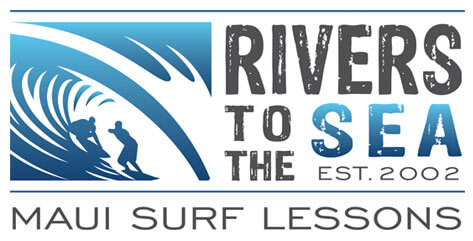Surfing is more than just a sport; it’s a way of life that promotes physical and mental well-being. Surfing is a popular activity for people of all ages and backgrounds, and it’s easy to see why. From the refreshing ocean breeze to the excitement of catching the perfect wave, surfing has benefits for both physical and mental health.

Physical Benefits of Surfing
Surfing is an excellent full-body workout that engages all of the major muscle groups. Here are some of the physical benefits of surfing:
- Cardiovascular Health: Surfing requires continuous paddling, which is an excellent cardiovascular workout that strengthens the heart and lungs.
- Muscular Endurance: Surfing engages the upper body, core, and lower body muscles, which improves overall muscular endurance.
- Balance and Coordination: Riding waves requires excellent balance and coordination, and surfing helps to develop these skills. This translates to better balance and coordination in other areas of life.
- Increased Flexibility: Surfing requires a wide range of motion, which can help to increase flexibility in the muscles and joints.
- Low-Impact Exercise: Unlike high-impact exercises like running, surfing is a low-impact activity that is easier on the joints. This makes it an ideal workout for people of all ages and fitness levels.

Mental Benefits of Surfing
Surfing is not just good for physical health; it also has numerous mental health benefits. Here are some of the mental benefits of surfing:
- Stress Relief: Surfing can be a great way to relieve stress and clear the mind. The sound of the ocean, the feeling of the water, and the excitement of catching a wave can help to reduce stress and promote relaxation.
- Improved Mood: Surfing releases endorphins, which are the body’s natural “feel-good” chemicals. This can lead to an improved mood and increased feelings of happiness and well-being.
- Mindfulness: Surfing requires focus and concentration, which can help to promote mindfulness. When you’re surfing, you’re fully present in the moment, which can help to reduce anxiety and promote mental clarity.
- Sense of Community: Surfing is often a social activity that brings people together. This sense of community and connection can be beneficial for mental health, especially for those who may feel isolated or disconnected from others.
- Increased Self-Confidence: Surfing can be a challenging activity, and successfully catching a wave can give a sense of accomplishment and increased self-confidence. This feeling of achievement can carry over into other areas of life.

Surfing on Maui
Maui is known as one of the world’s premier surf destinations, and for good reason. The island’s warm waters, consistent waves, and stunning scenery make it the perfect place to surf. Whether you’re a beginner or an experienced surfer, Maui has something to offer.
For beginners, Maui’s gentle waves and sandy beaches provide an ideal learning environment. Rivers to the Sea, Maui Surf Lessons offers classes which can help to build the foundational skills needed for surfing.
For more experienced surfers, Maui’s legendary waves offer a thrilling challenge. From the famous break at Honolua Bay to the massive swells at Pe’ahi (also known as “Jaws”), Maui has a wave for every level of surfer.
Surfing is much more than just a sport; it’s a way of life that promotes physical and mental well-being. From the physical benefits of cardiovascular health, muscular endurance, balance and coordination, increased flexibility, and low-impact exercise, to the mental benefits of stress relief, improved mood, mindfulness, sense of community, and increased self-confidence, surfing has something to offer for everyone.



